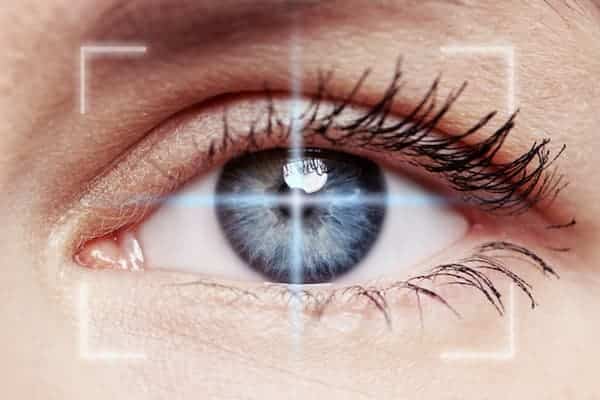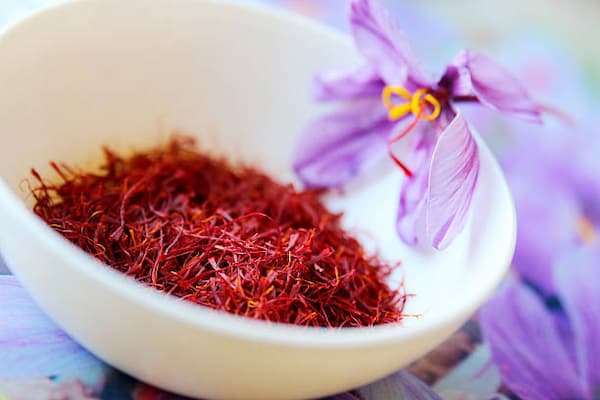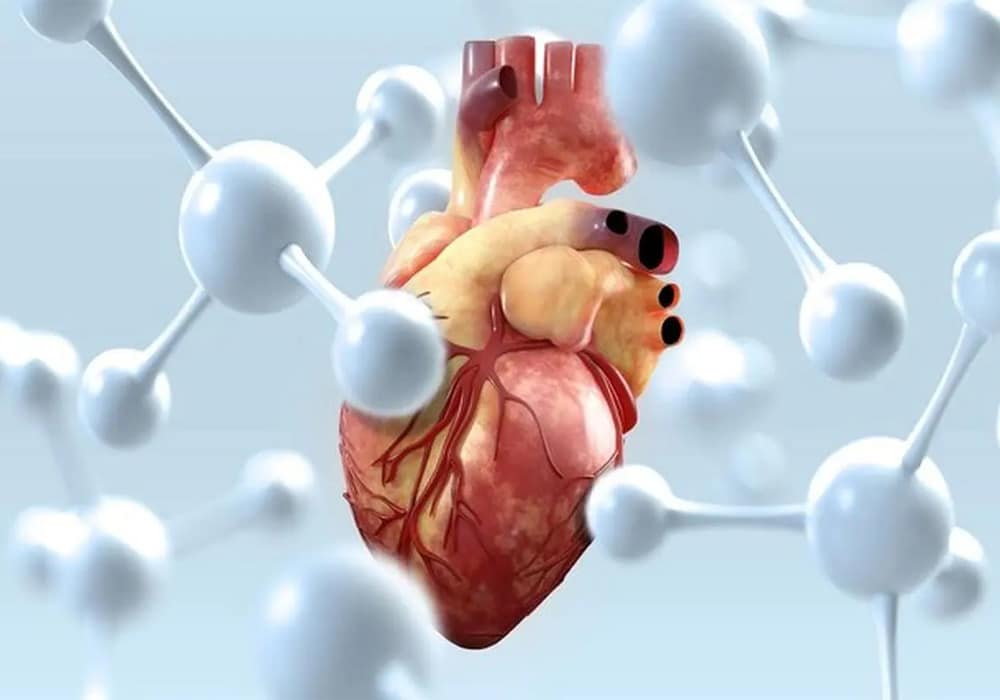Saffron, a prized spice derived from the Crocus sativus flower, is well-known for its culinary and medicinal benefits. In recent years, research has highlighted saffron’s significant role in promoting eye health and vision. Rich in antioxidants such as crocin, crocetin, and safranal, saffron helps protect the eyes from oxidative stress, inflammation, and age-related degeneration.
The effect of saffron on eyesight
If you recently feel that your eyes are weak or you have recently encountered new eye problems and your glasses or lenses cannot help you, we recommend that you go to saffron and try it. It has been proven that saffron can help strengthen and improve your eyesight according to recent studies and research.

Our previous articles have explained the benefits of saffron, one of the spices we all know and love. This medicinal plant, which has a variety of properties, has been called “red gold.” You have probably heard of it by other names, such as the Neshat plant.
Our food has a unique taste and aroma thanks to saffron’s purple flowers and red stigmas, which give it an additional distinctive flavor. Saffron comes from a medicinal plant and has purple flowers and red stigmas. In fact, saffron is considered the most popular and of course the most expensive spice in the world.
Benefits of saffron for eyes
Saffron, a precious spice derived from the Crocus sativus flower, has been used for centuries in traditional medicine. Beyond its culinary and medicinal properties, saffron is gaining recognition for its potential benefits in maintaining and improving eye health. Rich in powerful antioxidants, saffron plays a crucial role in protecting vision and preventing age-related eye diseases.
1. Helps Prevent Age-Related Macular Degeneration (AMD)
Age-related macular degeneration (AMD) is a common cause of vision loss, especially among older adults. Studies suggest that saffron can help slow down the progression of AMD by protecting retinal cells from oxidative damage. The carotenoids crocin and crocetin, present in saffron, enhance blood flow to the retina, improving visual function.
2. Protects Against Retinal Damage
Saffron contains potent antioxidants such as crocin, safranal, and zeaxanthin, which help protect retinal cells from damage caused by oxidative stress. These compounds work by neutralizing free radicals, reducing inflammation, and supporting overall eye health.
3. Enhances Visual Acuity and Clarity
Regular consumption of saffron has been linked to improvements in visual acuity and contrast sensitivity. Some studies indicate that saffron supplementation can enhance vision sharpness and clarity, making it beneficial for individuals suffering from mild vision impairment.
4. Reduces Risk of Cataracts
Cataracts, characterized by clouding of the eye’s lens, are a leading cause of blindness worldwide. The antioxidants in saffron help prevent protein damage and oxidative stress in the eye lens, reducing the risk of cataract formation and progression.
5. Helps in Managing Diabetic Retinopathy
Diabetic retinopathy is a diabetes-related complication that affects the retina. Saffron’s anti-inflammatory and antioxidant properties help protect retinal cells from damage due to high blood sugar levels, thereby lowering the risk of vision problems in diabetic individuals.
6. Relieves Eye Fatigue and Strain
With increased screen time and exposure to blue light from digital devices, eye strain and fatigue are becoming more common. Saffron’s protective effects on the retina and its ability to improve blood circulation to the eyes can help alleviate eye strain and reduce symptoms of digital eye fatigue.
How to Incorporate Saffron for Eye Health
To reap the benefits of saffron for your eyes, consider incorporating it into your daily diet:
-
Saffron Tea: Add a few strands of saffron to warm water or milk for a soothing drink.
-
Dietary Supplements: Saffron supplements are available in capsule form for those looking for a convenient option.
-
Culinary Use: Use saffron in cooking by adding it to rice, soups, or desserts.
The harm of saffron on the eyes
There is no doubt that excessive consumption of saffron can cause damage to your body, and some of these problems can lead to damage to your eyes as well.
The most crucial fact about saffron, however, is that taking too much of it can have harmful effects on your body. Pregnant ladies and the chance of miscarriage are two of its most well-known drawbacks. Few people are aware of the negative effects of too much saffron on the eyes, which is another drawback of excessive saffron consumption.
The three primary risks of taking more than the recommended amount of saffron for the eyes are covered in the sections that follow.
Numbness of the eyelids
Numbness of the eyelids is one issue that excessive saffron eating may bring on. If you consume too much saffron, your eyelids may become numb and appear to be half-closed practically all the time.
yellow eyes
It was said that one of the drawbacks of excessive saffron consumption is the skin’s gradual yellowing and change in hue. Your eyes are one of the other body parts that could become yellow from consuming too much saffron, too. Your eyes could become yellow if you consume saffron frequently and in big doses.
Bleeding from the eyes
There is a real risk of saffron damage to the eyes, although this may seem unlikely. People’s blood pressure is lower when saffron is consumed as it dilutes the blood and lowers blood pressure. In excess, you can dilute your blood much more than you should if you consume too much saffron. It is possible to suffer from nosebleeds or bloodshot eyes from time to time without any apparent reason due to excessive blood thinning.
▶ Study proposal: What season is the time to harvest saffron?
Long-term benefits of saffron consumption
A study was conducted to determine if longer-lasting effects could be achieved with saffron. In the study, some patients with macula were prescribed saffron for three months, which contains crocin and crostin, which are antioxidants that block the activity of anti-oxidation enzymes, which reduces oxidative stress. Those with maculas benefit from this treatment since it increases the activity of this enzyme. As well as treating vision problems, saffron can also improve macular degeneration, and inflammation of the retina, and repair vision cells.
Is using saffron tea good for the eyes?
In addition to preventing eye damage to photoreceptor cells, saffron extract prevents diseases such as macular degeneration and retinal pigment inflammation (a form of genetic eye disease responsible for night blindness) from forming and improving by preventing them from developing.
As a pain reliever and eye swelling treatment, saffron was widely used in ancient Greece.
Saffron supplements can bring extraordinary results for your vision if you need to strengthen it. Consult your doctor if you think you need these supplements.
How to take saffron for eyesight
Asia, the Middle East, and Europe all use saffron as an ingredient in their culinary traditions. In many grocery stores and online, you can find dried strands of saffron as well as powdered saffron.
Saffron’s flavor can be enhanced by steeping it in hot water and either drinking it as tea or adding it to recipes.
Saffron-containing oral supplements could be helpful for those with ARMD. People can consume antioxidant components found in saffron supplements such as crocin.
With a healthcare professional, people can discuss which supplement and dose may be ideal for them.
Is saffron useful for cataracts?
Like fennel, saffron is good for clearing up visual issues, especially cataracts. The features of saffron, according to researchers, may be a factor in the aging process and vision problems in people who already have eye disorders.
The basic description of a cataract is opacity in the eye’s lens. Behind the iris, on the inside of the eye, lies a transparent lens that directs light toward the retina.
Lens opacification occurs when the lens’s protein structure changes and a barrier is put in the way of light that is attempting to flow through it.
The most prevalent kind of cataracts, which are mostly brought on by aging and often afflict adults 65 and older, can also develop in persons as young as 35. As people age, the normal protein structure of their eye lenses is disrupted, and as a result, black spots start to form on the lens of the eye. As these black spots grow, the eye’s lens progressively loses its transparency and stops being able to transmit light.
So that you avoid these issues and lessen their symptoms and consequences if you do have them, saffron may actually be included in your daily routine before this age and even before any eye troubles arise.
Best saffron for macular degeneration
Those over 65 years of age are more likely to develop age-related macular degeneration (AMD). Vision loss or reduction in old age is most commonly caused by this disease. A yellow spot called the macular is located at the center of our retina, and it is the part of our eyes that is most sensitive to light.
When macular degeneration occurs, we lose vision in this part of our retina, making it difficult to read, drive, recognize colors, and see details. It is currently impossible to cure AMD despite enormous advances in clinical care. There are some strategies and drugs that are only effective in preventing the disease from progressing.
In 2022, a Malaysian research group reviewed all the research conducted on the effect of antioxidants on the rate of progression of age-related macular degeneration (AMD) and concluded from the research results that natural antioxidants have the power to improve or stop the progression of AMD. They can enhance vision and maybe prevent irreversible vision
Considering that saffron is rich in strong antioxidants such as crocin, another research group in Australia investigated the effect of saffron consumption on the eyesight of 30 AMD patients. In this research, 20 mg of saffron was given to patients daily for three months. The obtained results proved that saffron supplementation moderately improved visual performance in participants with AMD. Given the chronic nature of AMD, long-term supplementation may have additional benefits.
▶ Types of saffron: super negin saffron | sargol saffron | saffron powder
https://tidasaffron.com/contact-us/
Amazing Benefits of Saffron for Eye Health & Vision – FAQ
1. How does saffron benefit eye health?
Saffron contains powerful antioxidants like crocin and crocetin, which help protect retinal cells from damage, reduce inflammation, and improve blood circulation in the eyes.
2. Can saffron help with age-related macular degeneration (AMD)?
Yes, studies suggest that saffron can slow down the progression of AMD by protecting photoreceptor cells and enhancing their function.
3. Does saffron improve night vision?
Yes, saffron has been shown to enhance visual performance, including contrast sensitivity and night vision, by strengthening the retina’s response to light.
4. Can saffron help reduce eye fatigue?
Yes, the anti-inflammatory properties of saffron help reduce eye strain and fatigue, especially in people who spend long hours in front of screens.
5. How does saffron protect against oxidative stress in the eyes?
Saffron’s antioxidants neutralize free radicals, preventing oxidative stress that can lead to eye diseases such as cataracts and glaucoma.
6. Is saffron effective for dry eyes?
Yes, saffron may help increase tear production and improve symptoms of dry eye syndrome.
7. How should I consume saffron for better eye health?
Saffron can be consumed in tea, milk, or as a supplement. A common dosage for eye health benefits is around 20–50 mg per day.
8. Can saffron prevent cataracts?
While saffron may not directly prevent cataracts, its antioxidant properties help reduce oxidative damage that contributes to cataract formation.
9. Is saffron safe for long-term use?
Yes, saffron is generally safe in recommended doses. However, excessive consumption may lead to side effects like dizziness or digestive issues.
10. Who should avoid saffron supplements?
Pregnant women, people with low blood pressure, or those on certain medications should consult a doctor before taking saffron supplements.
final word
So that you avoid these issues and lessen their symptoms and consequences if you do have them, saffron may actually be included in your daily routine before this age and even before any eye troubles arise.
Buy Premium Saffron from Tida Silk Road Trading
Experience the finest premium saffron with Tida Silk Road Trading! Sourced from the best farms, our saffron is 100% pure, aromatic, and rich in color—perfect for cooking, health, and beauty.
Why choose us?
✔ Highest Quality – Handpicked, fresh, and naturally dried
✔ Vibrant Color & Aroma – Enhances your dishes beautifully
✔ Competitive Prices – Premium saffron at the best value
✔ Worldwide Shipping – Delivered fresh to your doorstep
Add a touch of luxury to your meals with Tida Silk Road Trading Saffron! 🌿
📩 Order Now! Contact us for wholesale and retail prices.
- website → buy high-quality dried fruit products








